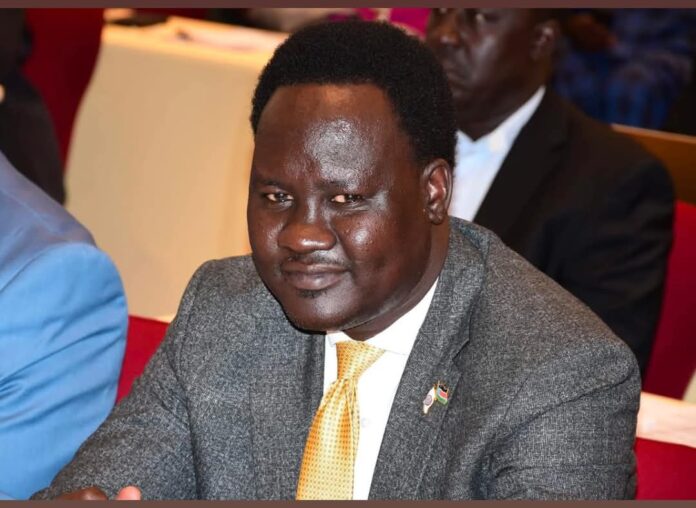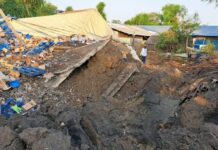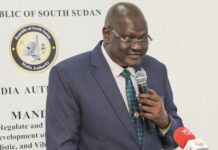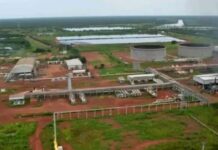OPINION: Malek Cook-Dwach, Ph.D. Candidate
Since gaining independence from Sudan in 2011, South Sudan has faced severe political and economic challenges that have hindered its development. The country’s struggle for stability has been marked by a prolonged civil conflict that erupted in December 2013, largely driven by power struggles within the ruling Sudan People’s Liberation Movement (SPLM).
The conflict has caused widespread violence, displaced millions, and led to a deepening humanitarian crisis that continues to impact the population.
Political Turbulence:
South Sudan’s political landscape remains unstable, shaped by ongoing power struggles between factions of the SPLM and ethnic divisions. The initial outbreak of violence in 2013 was fueled by political rivalry between President Salva Kiir and then-Vice President Riek Machar, escalating into a civil war that devastated the country. Despite the signing of a peace agreement in 2015, violence resumed in 2016, further fragmenting the political environment.
In 2018, a revitalized peace agreement was signed, creating a framework for the establishment of a transitional government. While the government has taken shape, the implementation of the peace deal has been sluggish, hindered by political infighting, lack of trust, and unmet commitments. Key issues such as disarmament of armed groups, security sector reforms, and the integration of rival forces have made slow progress.
The transitional government faces growing criticism for its failure to effectively address corruption, impunity, and human rights abuses. The absence of accountability for past atrocities—such as the mass killings, sexual violence, and ethnic cleansing during the civil war—continues to fuel political instability. Many South Sudanese citizens feel disillusioned by the slow pace of reforms, and the country’s leaders face increasing pressure to deliver tangible results.
Economic Crisis:
The economic situation in South Sudan is dire, largely due to the country’s overreliance on oil exports, which account for more than 90% of government revenues. Fluctuations in global oil prices have had a devastating effect on the economy, resulting in severe budget deficits and skyrocketing inflation rates, which have at times surpassed 100%. The country’s economy is further constrained by inadequate infrastructure, limited access to basic services, and high levels of unemployment.
Agricultural production, a potential source of economic diversification, has been severely hampered by ongoing insecurity and climate-related challenges, including flooding and droughts. As a result, food insecurity has become widespread. According to the World Food Programme (WFP), millions of South Sudanese are facing acute hunger and malnutrition, with no immediate solutions in sight.
The country’s economic crisis is also exacerbated by rampant corruption within government institutions. Mismanagement of resources, including the misappropriation of oil revenues and foreign aid, has undermined public trust in leadership. While there have been calls for economic diversification to reduce dependence on oil, progress has been slow, and efforts to promote other revenue-generating sectors—such as agriculture, mining, and manufacturing—have yielded little tangible impact.
Humanitarian Impact:
The political instability and economic collapse have contributed to one of the world’s worst humanitarian crises. Over 7 million people—approximately half of South Sudan’s population—need humanitarian assistance. The conflict has displaced millions, creating large refugee populations both internally and across South Sudan’s borders, with neighboring countries like Uganda, Kenya, and Ethiopia hosting significant numbers of South Sudanese refugees.
International aid organizations play a critical role in providing humanitarian relief, but their efforts are often hampered by security concerns, bureaucratic obstacles, and restrictions imposed by the South Sudanese government. Access to some of the most vulnerable areas remains limited, and the inability to reach many communities in need exacerbates the suffering of the population.
In summary, South Sudan’s political turbulence is driven by deep-rooted ethnic tensions and power struggles among political elites, while the country’s economic crisis is compounded by dependence on volatile oil revenues and pervasive corruption.
These intertwined challenges have created a vicious cycle of instability that impedes recovery and development. The lack of political will to address key issues such as governance, accountability, and economic diversification further hinders progress.
South Sudan’s future remains uncertain unless substantial international support is combined with genuine, sustained efforts by local leaders to rebuild trust, foster national unity, and deliver on peace agreements. The road to lasting peace and prosperity will require addressing the root causes of conflict, ensuring justice for past atrocities, and creating a diversified, resilient economy that can withstand external shocks.
Ultimately, the fate of South Sudan depends on the commitment of its leaders and the international community to work together in resolving the country’s political and economic crises. Without a comprehensive, inclusive approach to peacebuilding and reform, South Sudan risks remaining trapped in a cycle of instability and underdevelopment for years to come.
About the Author:
Malek Cook-Dwach is a Ph.D. candidate at the University of Juba, focusing on the impact of River Naam dredging on water security in South Sudan. He is a member of the Transitional National Legislative Assembly (TNLA), representing Leer Constituency, and currently serves on the Standing Specialized Committee on Energy and Dams. He was previously the Chairperson of the Standing Specialized Committee on Federal Affairs in the TNLA. The views expressed in this article are those of the author and do not reflect the position of the institution to which he is affiliated.





